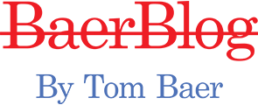To execute judicially-authorized search warrants on the home, office and hotel room of a lawyer is a rare exercise of investigative power because it assails the protected and privileged relationship of an attorney and client.
When Michael Cohen, Esq., the attorney, communicated with the presumed client, Donald Trump, both had an expectation that those communications were secret, protected by attorney-client privilege.
But on Monday, the United States Attorney for the Southern District of New York dashed that expectation.
Here’s what had to happen before the application for search warrants to a United States Magistrate:
- The United States Attorney had to be convinced that the material to be seized was not privileged because it fell under the fraud/crime exception to attorney-client privilege. This means that the material to be seized was evidence of a crime.
- There had to be compliance with the Manual for United States Attorneys requiring approval by the Chief of the Criminal Division of the Department of Justice on a showing that a less intrusive way of getting the materials (i.e., a Grand Jury subpoena returnable on a particular date) would likely result in the destruction of the materials.
- A team of lawyers and Special Agents of the F.B.I.not connected to the investigation had to be assembled to review the seized materials to segregate those not pertinent to the alleged crimes so that privileged material would be returned to Mr. Cohen.
- An application had to be prepared, under oath, demonstrating to a United States Magistrate that there was reason to believe that crimes had been committed so that the Magistrate would believe and accept the allegations.
These stringent conditions mean that the prosecutors are convinced that Michael Cohen committed crimes, that he would destroy the evidence of those crimes if given prior notice of what they wanted, and that they persuaded a federal judge to order warrants.
Cohen’s troubles yielded the typical lies and recriminations that Trump trots out when angered or frustrated.
Lie: The FBI “broke in” to Cohen’s office. Truth: They executed a search warrant.
Lie: The seizure is a “disgrace.” Truth: Law enforcement is the right of all Americans.
Lie: Execution of the search warrants is an “attack on our country.” Truth: Executing the warrants is lawful and not an “attack.”
Lie: Special Counsel Mueller is unfair in getting these warrants. Truth: Mueller referred that matter to the federal prosecutor in Manhattan, appointed by Trump.
We are unaware of Cohen’s alleged crimes. There are at least two possibilities:
- In applying for a loan to pay $130,000 as hush money to Stormy Daniels, Cohen’s application did not disclose the purpose of the loan.
- The $130,000 was an in kind contribution to the Trump presidential campaign exceeding the permissible $5,400 allowed under the federal election laws. In this connection, if Trump reimbursed Cohen, this would be better for Cohen because candidate Trump was permitted to contribute unlimited amounts to his own campaign, a right not afforded to Cohen.
